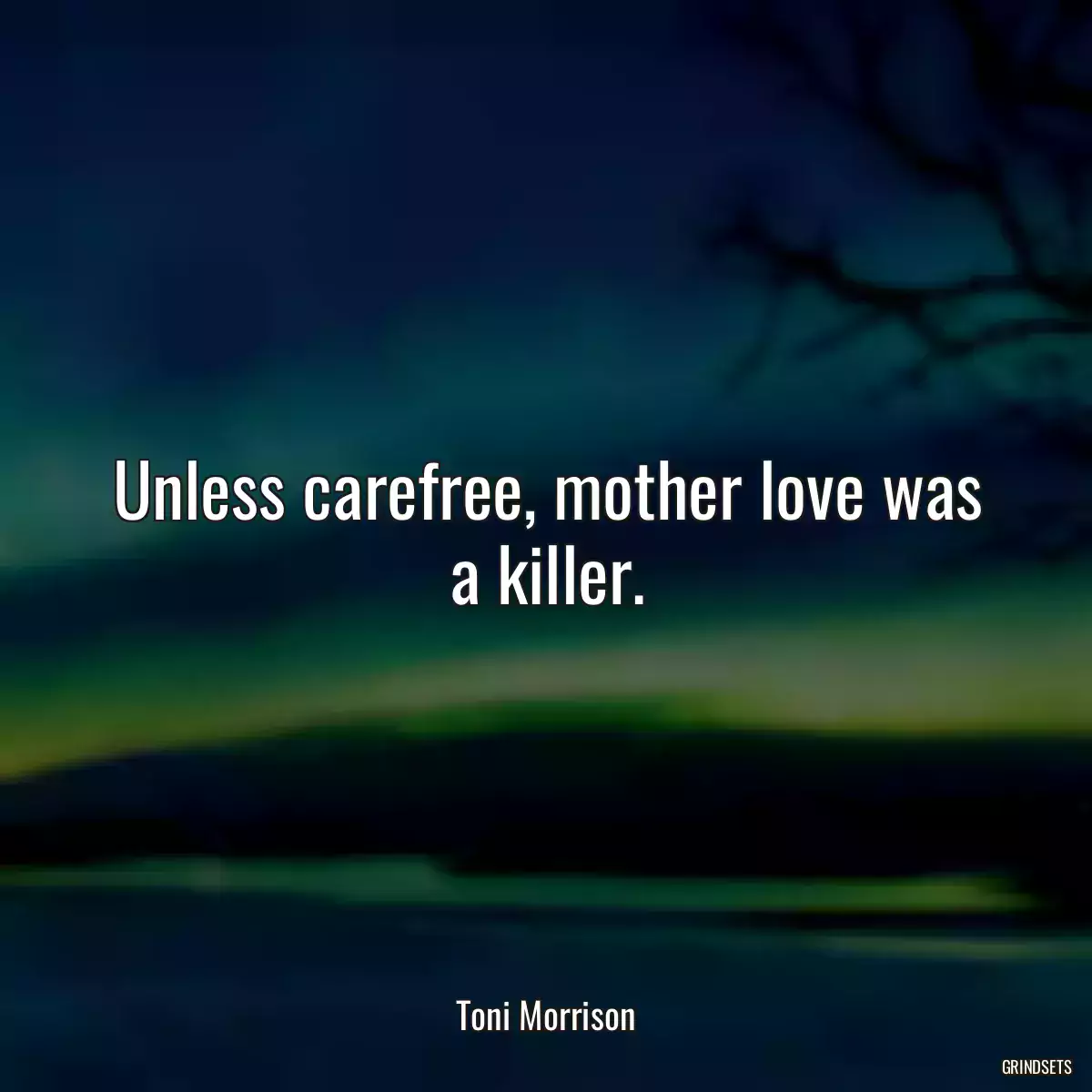
Quotes Toni Morrison
Find dozens of Toni Morrison with images to copy and share.

Grown don't mean nothing to a mother. A child is a child. They get bigger, older, but grown? What's that supposed to mean? In my heart it don't mean a thing.
In my mother's church, everybody read the Bible and it was mostly about music. My mother had the most beautiful voice I have ever heard in my life. She could sing anything - classical, jazz, blues, opera. And people came from long distances to that little church she went to - African Methodist Episcopal, the AME church she belonged to - just hear her.
I sang "O Holy Night" in a school choir. My mother came and listened to me and complimented me. So that was the high point. I cannot sing a note.
You may also like
I don't think anybody cares about unwed mothers unless they're black or poor. The question is not morality, the question is money. That's what we're upset about.
...fact was she knew more about them than she knew about herself, having never had the map to discover what she was like. Could she sing? (Was it nice to hear when she did?) Was she pretty? Was she a good friend? Could she have been a loving mother? A faithful wife? Have I got a sister and does she favor me? If my mother knew me would she like me? (140)
Misery colored by the greens and blues in my mother's voice took away all the grief out of the words and left me with a conviction that pain was not only endurable, it was sweet.
All the time, I'm afraid the thing that happened that made it all right for my mother to kill my sister could happen again. I don't know what it is, I don't know who it is, but maybe there is something else terrible enough to make her do it again. I need to know what that thing might be, but I don't want to. Whatever it is, it comes from outside this house, outside the yard, and it can come right on in the yard if it wants to. So I never leave this house and I watch over the yard, so it can't happen again and my mother won't have to kill me too.
Home is memory, home is your history, home is where you work. Some people want to abandon it and become truly local. But the questions are all there.

She is convinced that when language dies, out of carelessness, disuse, indifference and absence of esteem, or killed by fiat, not only she herself, but all users and makers are accountable for its demise. In her country children have bitten their tongues off and use bullets instead to iterate the voice of speechlessness, of disabled and disabling language, of language adults have abandoned altogether as a device for grappling with meaning, providing guidance, or expressing love.
It's always seemed to me that black people's grace has been with what they do with language. In Lorrain, Ohio, when I was a child, I went to school with and heard the stories of Mexicans, Italians, and Greeks, and I listened. I remember their language, and a lot of it is marvelous. But when I think of things my mother or father or aunts used to say, it seems the most absolutely striking thing in the world.
One of the monstrous things that slavery in this country caused was the breakup of families. I mean, physical labor, horrible; beatings, horrible; lynching death, all of that, horrible. But the living life of a parent who, A, has no control over what happens to your children, none. They don't belong to you. You may not even nurse them. They may be shipped off somewhere, as in "Beloved" the mother was, to be nursed by somebody who was not able to work in the fields and was a wet nurse.
The vitality of language lies in its ability to limn the actual, imagined and possible lives of its speakers, readers, writers.
The ability of writers to imagine what is not the self, to familiarize the strange and mystify the familiar, is the test of their power.
Language can never 'pin down' slavery, genocide, war. Nor should it yearn for the arrogance to be able to do so. Its force, its felicity, is in its reach toward the ineffable.
When I write, I don't translate for white readers.... Dostoevski wrote for a Russian audience, but we're able to read him. If I'm specific, and I don't overexplain, then anyone can overhear me.
There is an incredible amount of magic and feistiness in black men that nobody has been able to wipe out. But everybody has tried.
You may also like

I don't wait to be struck by lightning and I don't need certain slants of light in order to be able to write.